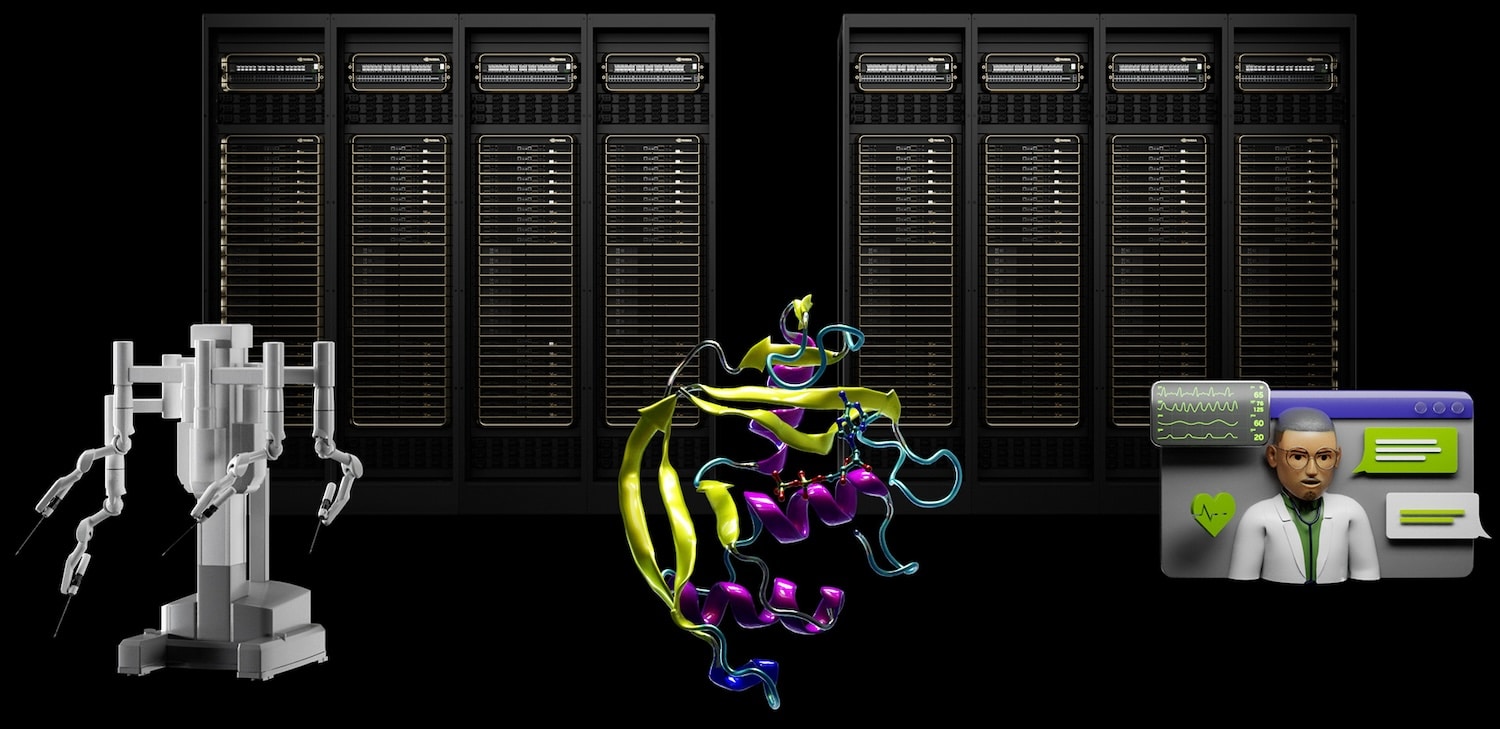Taiwan’s premier medical institutions, the National Health Research Institute (NHRI) and Chang Gung Memorial Hospital (CGMH), are set to revolutionize biomedical research and patient care by adopting accelerated computing and generative AI technologies. These advancements aim to enhance everything from medical imaging and patient care to streamlining clinical workflows and advancing drug discovery research.
AI’s Impact on Healthcare
Dr. Hung-Yi Chiou, director of the Institute of Population Health Sciences (IPHS) at NHRI, emphasized AI’s transformative potential in healthcare, noting that it will fundamentally change disease prevention and treatment approaches. With AI’s ability to quickly and accurately analyze vast amounts of data, personalized medicine strategies and early intervention methods that were previously unattainable are now possible.

Dr. Wen-Jin Cherng of CGMH echoed this sentiment, highlighting the promising future of AI in healthcare. He explained that AI will lead to more accurate diagnoses, better treatment plan predictions, and faster patient recovery. Furthermore, AI can streamline complex analytical processes, enabling more efficient and cost-effective decision-making in healthcare.
Integrating NVIDIA Blackwell Technology
Integrating NVIDIA’s Blackwell platform into NHRI and CGMH marks a significant advancement in AI-driven healthcare. Dr. Cherng highlighted the platform’s potential to enhance patient care and streamline clinical workflows. NHRI, a leading medical research institution in Taiwan, has incorporated NVIDIA’s accelerated computing into its IT infrastructure, marking a significant leap forward in AI-driven healthcare.
NHRI’s collaboration with NVIDIA extends to developing large language models tailored to Taiwan’s healthcare needs. Dr. Feng-Chi Chen, deputy director of IPHS at NHRI, explained that traditional Chinese medical records and genomic data present unique challenges that require localized solutions. NVIDIA’s accelerated computing capabilities enable the creation of these solutions, ensuring that Taiwan’s healthcare system remains at the forefront of medical research.
CGMH, one of Taiwan’s largest healthcare systems, has a network of 10 hospitals with over 11,000 beds and serves millions with outpatient services. The hospital’s AI center, led by Dr. Chang-Fu Kuo, is leveraging the computational power of NVIDIA’s Blackwell platform to expand language model services across its network. This enhancement supports various medical disciplines and patient populations, ultimately improving patient outcomes.
Advanced AI for Health Research and Patient Care
NHRI currently utilizes six NVIDIA DGX A100 systems for cloud and data center services, focusing on biomedical model training and genomic analysis. By harnessing NVIDIA’s accelerated computing power, NHRI is tackling pressing public health issues, such as predicting the risk of chronic diseases like diabetes and cardiovascular conditions by analyzing genetic and environmental parameters. Dr. Chen emphasized that this level of analysis was previously unattainable due to computational constraints.

CGMH employs various NVIDIA hardware, including H100, A100, and other Tensor Core GPUs, for medical imaging development and deployment. The hospital runs 46 models daily and plans to use Blackwell to train large language models (LLMs) and deploy service robots in hospitals. Dr. Chihung Lin, deputy director of the CGMH AI center, noted that running these systems on premises ensures patient data privacy, faster data processing, and reduced latency.
AI-Powered Medical Applications
CGMH is utilizing new technologies in various medical applications:
- Clinical Decision Support System: Developed on-premises to ensure patient data confidentiality, this system provides clinicians access to up-to-date data and guidelines, using models to assist medical decisions.
- Patient Interaction System: This system allows patients to interact with a robot to get answers about their medication and medical conditions, reducing the burden on medical staff. Medical staff reviews responses for accuracy.
- Medical Imaging: AI enhances radiology and other imaging tasks, and it is one of the most mature AI technologies in CGMH’s healthcare system.
- Precision Medicine: Manages large-scale genomic data, transforming sequences into readable medical reports for doctors, supporting whole genome and exome sequencing.
- Expansion of AI Services: Extends language model services to all hospitals under CGMH’s umbrella, leveraging computational capacity from the Blackwell platform.
Additional applications include early detection of colorectal cancer via endoscopy, autoimmune disease screening through microscope images, and kidney disease prediction using general imaging techniques.
The adoption of accelerated computing by NHRI and CGMH underscores the growing importance of AI and advanced computing in medical research and healthcare delivery. With these tools, Taiwan is positioned to improve patient outcomes and advance biomedical science significantly.




 Amazon
Amazon